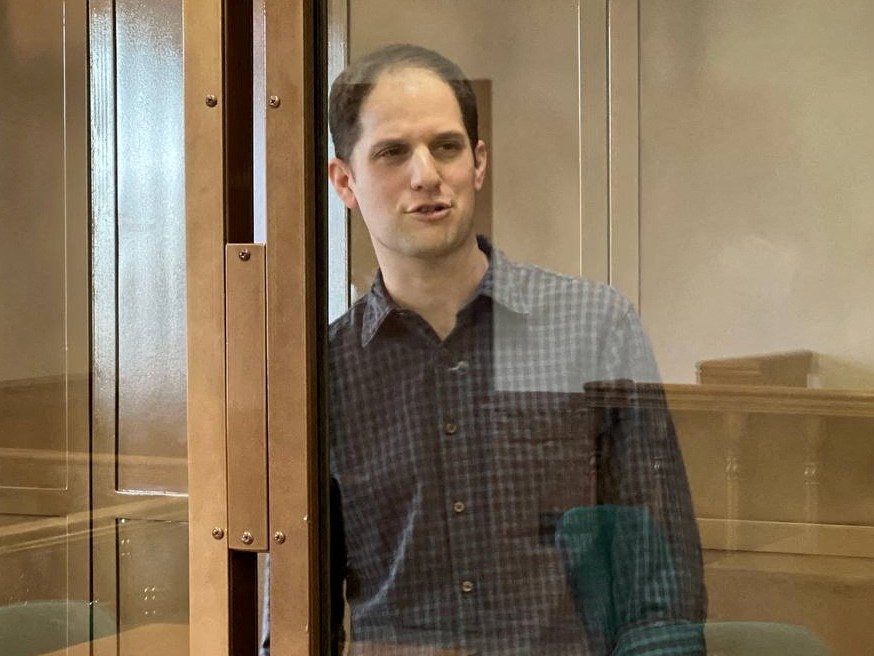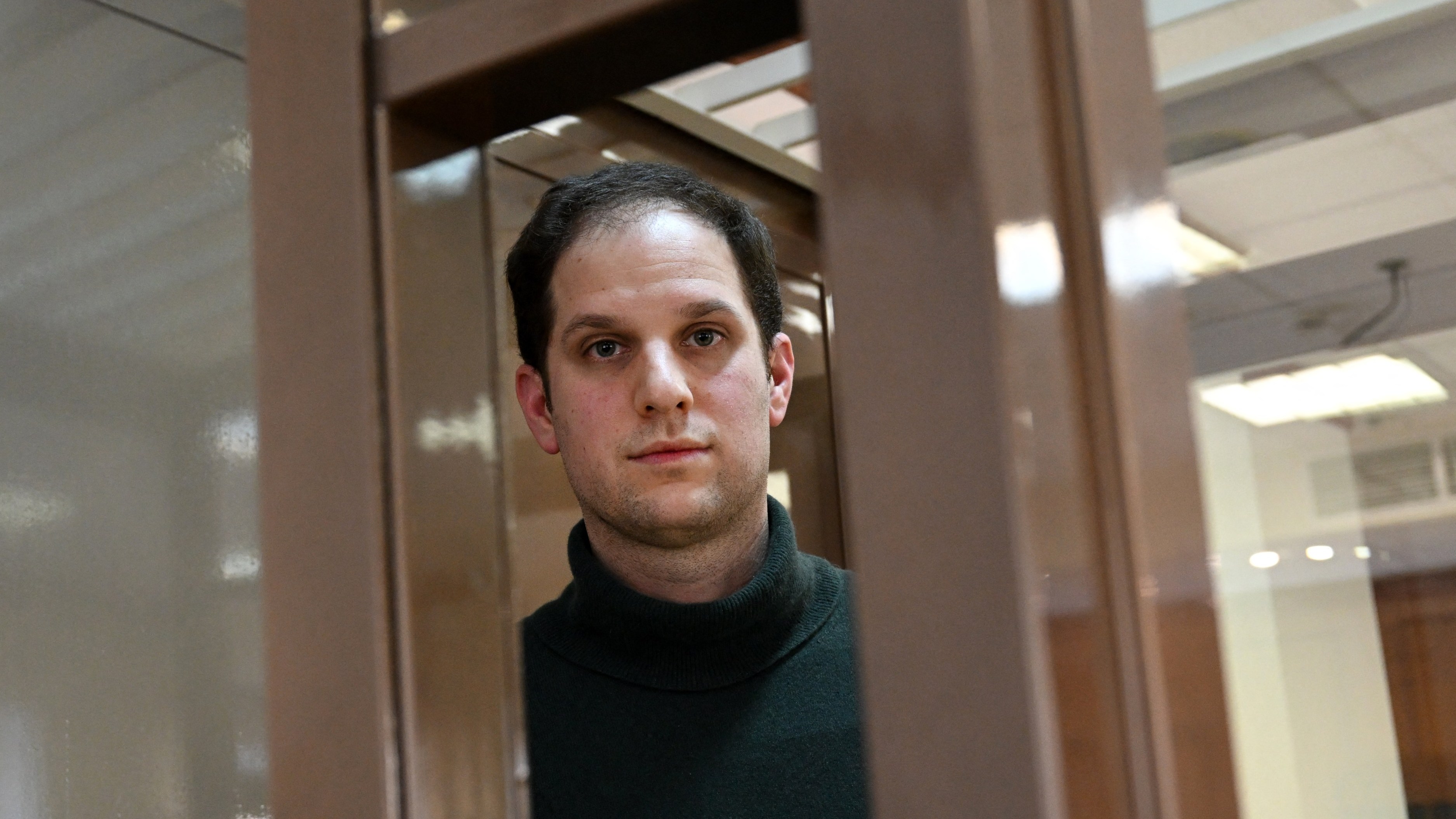
Evan Gershkovich, the Wall Street Journal correspondent arrested in Russia for spying, has now spent a year in Lefortovo prison, a grim jail used largely by the FSB, Russia’s security service. At yet another token appearance before a closed Moscow court he has just been remanded in custody until at least the end of June while Russia prepares formal charges. With breathtaking cynicism, Kremlin officials have all but admitted that he is a hostage, seized opportunistically to trade for Russian murderers, arms dealers and spies held in the West. This is the level on which justice now operates in President Putin’s Russia.
Appeals for his release by President Biden, the Archbishop of Canterbury and fellow journalists around the world have made not the slightest difference. The conditions under which Mr Gershkovich are held, in a cell with no outside communication and one hour’s exercise a day, have not improved. Russia has produced no evidence that his reporting from the city of Yekaterinburg constituted espionage. Indeed, his detention and that of other US citizens such as Paul Whelan, a former marine serving a 16-year sentence for espionage, has been explicitly linked to shabby bargaining over prisoners the Kremlin wants back from the West. Like Iran, Russia now regards any western visitor or accredited journalist as fair game. Little wonder that few remain there.
However disdainful, the West has usually been forced to haggle over the release of those seized for political motives. America reluctantly agreed to set free Viktor Bout, a notorious Russian arms dealer, arrested in a US sting operation in Thailand, in exchange for a US basketball star convicted of a minor drugs offence in Russia.
A complex operation had been set in train to secure Mr Gershkovich’s release in return for a Russian assassin, convicted in Germany of killing a Putin opponent. Germany, however, was ready for such an unsavoury deal only if Alexei Navalny, the Russian opposition leader flown to Germany to recover from an attempted novichok poisoning, was released from his Arctic prison where he was sent on his return to Russia. His presumed murder may have been provoked by Mr Putin’s refusal to see such a powerful opponent free again. Any deal over Mr Gershkovich was off.
Confronting Russia with its international obligation to allow journalists to operate freely is a thankless task. In the ever tighter restrictions on the press, on free expression and on individual liberty strangling Russia since the start of the Ukraine war, journalists have been the first victims. According to the Committee to Protect Journalists, 43 Russian media workers have been killed since Mr Putin became president in 2000. Reporting news that is contrary to the state’s narrative is effectively illegal. Of the global total of 17 journalists now imprisoned outside their native countries, 12 are being held in Russia.
Advertisement
Russia and other authoritarian regimes rarely understand why the West makes the arrest or mistreatment of a single individual a matter of state policy. But Mr Putin seems perfectly ready to seize as many western hostages as necessary for political blackmail. The cost must be made clear. The West, too, can step up sanctions in response to such cynical manipulation. Mr Gershkovich is a symbol of why, increasingly, Russia is now seen in the West as a lawless state. Russia would help its own image and its interests to release him now.



